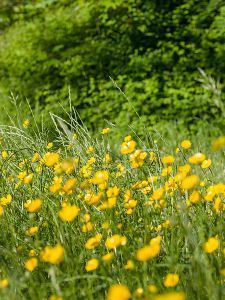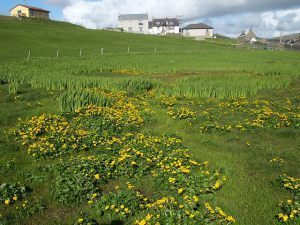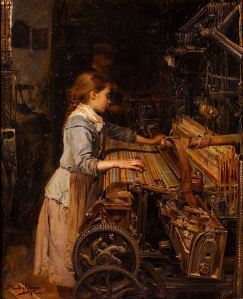Fran Macilvey's Blog, page 56
October 29, 2014
Lunch at the Buttercup Caf�� (Est. 1962)

�� Buttercup flower����

Buttercup tree flower
During the recent October school break, we enjoyed two very full days at North Berwick and its environs. Strolling along the pavement of the High Street, I remembered the single most important reason why I would not want to up sticks and settle in this town: the pavements are too narrow to allow anything other than modest perambulations in single file. But, since I have been swimming regularly, I feel confident and smooth, strolling easily along the surprisingly quiet one-way streets. So now, I might consider it, just for fun.
I spot the Buttercup Caf����and even although it is after closing time at four in the afternoon, the place is evidently packed and no-one seems in any hurry to leave. Feeling a bit like a character in a chic lit novel, I make a mental note and, the next day that is where we stop for lunch. It is crowded, but ��� bless her! ��� the proprietrix asks a fellow guest if she would mind sharing with us. We all squeeze companionably around a good table next to the wall where we are snug and out of the way.
The yellow split pea soup is good, as is the brown bread to accompany it. Hubby is very happy to take the second-last portion of mince and tatties on offer. We have drinks and cakes, as we watch the regulars coming and going: lots of mums with toddlers and senior ladies having a catch up; and plenty of friendly banter. I warm ever more to the Buttercup Caf��, with its bright yellow awning catching the sunlight outside.
���Excuse me!��� calls the proprietrix to a family of four who, having seen how busy the tables are, are about to depart. She invites the friendly couple already seated at the large window table to relocate to a smaller table and the four come back ��� grandparents and two small boys who look as if they have won the jackpot. I am so delighted that the owner considers the seating, and serves the couple quickly so that they feel thanked for their co-operation. She is thoughtful, business-like and totally in command of the situation.
Special service���small acts of kindness���come in many guises. We just have to spot them, and be thankful.

�� Field of Buttercups, England


Lunch at the Buttercup Café (Est. 1962)

Buttercup flower

Buttercup tree flower
During the recent October school break, we enjoyed two very full days at North Berwick and its environs. Strolling along the pavement of the High Street, I remembered the single most important reason why I would not want to up sticks and settle in this town: the pavements are too narrow to allow anything other than modest perambulations in single file. But, since I have been swimming regularly, I feel confident and smooth, strolling easily along the surprisingly quiet one-way streets. So now, I might consider it, just for fun.
I spot the Buttercup Café and even although it is after closing time at four in the afternoon, the place is evidently packed and no-one seems in any hurry to leave. Feeling a bit like a character in a chic lit novel, I make a mental note and, the next day that is where we stop for lunch. It is crowded, but – bless her! – the proprietrix asks a fellow guest if she would mind sharing with us. We all squeeze companionably around a good table next to the wall where we are snug and out of the way.
The yellow split pea soup is good, as is the brown bread to accompany it. Hubby is very happy to take the second-last portion of mince and tatties on offer. We have drinks and cakes, as we watch the regulars coming and going: lots of mums with toddlers and senior ladies having a catch up; and plenty of friendly banter. I warm ever more to the Buttercup Café, with its bright yellow awning catching the sunlight outside.
‘Excuse me!’ calls the proprietrix to a family of four who, having seen how busy the tables are, are about to depart. She invites the friendly couple already seated at the large window table to relocate to a smaller table and the four come back – grandparents and two small boys who look as if they have won the jackpot. I am so delighted that the owner considers the seating, and serves the couple quickly so that they feel thanked for their co-operation. She is thoughtful, business-like and totally in command of the situation.
Special service–small acts of kindness–come in many guises. We just have to spot them, and be thankful.

Field of Buttercups, England


October 27, 2014
Whitekirk, East Lothian

St Mary’s Church, Whitekirk, East Lothian
Whitekirk is a hamlet situated on the coast road between North Berwick and Dunbar in East Lothian. Hinting at its historic importance, the hamlet has a disproportionately large Church, St Mary’s Church, in prime position at the junction of three roads. Nowadays it feels a bit stranded on its corner site. Still, it is arresting.
A historic Church of Scotland church much visited by Scottish royalty in the sixteenth century, St Mary’s was on the pilgrim route from St Andrews to Santiago de Compostela and has long been associated with miracles. What a pity that our holiday pilgrimage to East Lothian consisted of many drives past on the way to somewhere else, as such a place would have proved fascinating and well worth a visit in its own right.
Like many older buildings in the area, the church is constructed in blocks of strikingly dark red sandstone, so that really the kirk should be called The Red Kirk, though it may once have been coated with white limewash. On a ghostly autumnal evening, caught in the glow of setting sun, the church is beautifully and hauntingly illuminated.
I notice that many older buildings in North Berwick and around the district, even those originally intended for fairly humble – but important – purposes, such as the chandlers or ship outfitters sited at the corner of the harbour road, are set down in solid blocks of the same red sandstone. It is the traditional colour of the area, and reveals a slightly old-fashioned, warm and embracing heart beneath all the surface gaiety, the tourist shops and art galleries.


October 24, 2014
Time Away To Write
I have been feeling jaded, of late, as if the energy around me was needing a good blow of wind to get it moving again. Unsure that I would ever find another thing to write about, or any way to reawaken my desire to continue, in the end, the simplicity of the solution has been clear, reassuring and simple. Hubby – bless his heart! – insisted on two days away to our favourite place, Canty Bay House just outside North Berwick.
As soon as I came over the front door, smelt the floor polish and remembered the big solid table where occasionally I have found a moment to sit and write, I rediscovered that the urge to commit words to the page – words about beauty, silence, the dark brooding colours, the buffeting wind and the seahorses – was and is entirely genuine.
The window in our room frames a clear view out to the Bass Rock just a short distance away. I could have watched the waves for hours. Constant wind buffets away all thoughts of timetables, obligations and city routine and, even glancing at the raindrops on the glass, I feel that familiar and most welcome desire to locate pen and paper. But, most unusually, I did not bring any with me, so, have to go and find some, finally tracking both, in the Post Office on North Berwick High Street.
The relief of sitting scribbling blog posts, seated at the heavy dining table, is intense, as is the satisfaction of knowing that yes, in fact, I do actually love to write. I am happy, reassured and at peace, pleased with the urgency which announced itself rather unexpectedly, and would not leave me in peace until I honoured it. Like everyone else, I just need refreshment, a change of scene.
I know why JKR wrote in a café every day. There is lots to see, but no distractions of the domestic sort, that always call away our attention. There is constant novelty, in the sights and sounds of other people, and cups of tea made and set down, like a gentle instruction to take care of oneself. Time away is not a waste of time.

Bass Rock – view from our room

Tantallon Castle Doocot, with Bass Rock beyond


October 22, 2014
Book Reviews
‘I Think I’m Okay’ by C.S.Kenny
‘Seasons: A Real Story of an Amish Girl’ by Elizabeth Byler Younts
I have to thank Facebook, and one particular group, for bringing these two books to my attention. I recently put both these books on my kindle, and both have proved worthwhile and absorbing to read.
Each account covers childhood, and both narratives end when the MC’s find a measure of happiness with life, having learned about hardship from an early age.
C.S Kenny details the breakdown of his relationship with his family, primarily because of the abuses he suffered at the hands of his step-brother. He goes to some pains to let us know that although initially he and his step-father did not get on, in later years his step-dad made sincere efforts to try to help CS and to try to resolve his difficulties with the family.
But since Steve was unable to be honest about the abuse he was suffering, it was he, ultimately, who paid the price in the loss of an ordinary, stable family upbringing. I have thought about this a lot, lately. CS was abused, but at a time when abuse victims were routinely disbelieved and even blamed for their predicament. So, the abuser avoided discovery, and the abused person suffered greatly. How many other young people find themselves in similar predicaments?
SC is a wry, amusing and clever narrator, able to understand and deprecate most situations he finds himself in. He became a persistent runaway, perhaps because he simply wanted to be free – of suspicion, of neglect, of stupid assumptions and cruel minders. In one telling instance, he describes a perfectly ordinary and wonderful day he spent with his mum, before being transferred to yet another institution. On another occasion he tells of being perfectly well behaved over a number of years, while at summer camp. Nowadays, I would hope that such clues would be noticed, and acted upon.
I recommend this tale, because it is honest, revealing and straightforward. I am so pleased that CS has found a good life, a world away from his early experiences. I hope that his account may help others and inspire those within the caring professions to look past the usual assumptions we make about why children end up in care. Thanks, CS, and best of luck!
‘Seasons’ is a similarly poignant tale that unfolds in very different circumstances. It is the story of the author’s grandmother Lydia, told as a first person narrative. As such, you might expect it to lose some immediacy, but it is testament to EBY’s empathy and integrity that I felt entirely pulled along by this story of an Amish girl growing up as the eldest in a strictly observant and very poor family. As the eldest, many of the tasks of caring and domesticity fell to Lydia from a surprisingly early age, and unquestioningly she accepted her lot. She seemed to have an almost intolerable burden placed upon her, because of her place within the family, her gender and the teachings of her faith. I was struck at one point early in the narrative when the MC, aged about seven, was quietly instructed by her father to put a pitchfork back, and he told her, ‘You’ll be spanked if it happens again.’ That made me realise how much our expectations have changed in the last fifty years or so. Nowadays most young girls would not be expected to sweep, clean and do laundry for the whole family. Happily for Lydia she finds herself marrying into a large fairly liberal Amish family living in a different state, who, unlike her timid and rather silent family, are portrayed as demonstrative, generous, cheerful and willing to debate amongst themselves.
This book has also given me much to reflect on and appreciate. I am grateful for the strides in equality and self-expression that women are mostly able to take for granted; I am humbled that so many of our predecessors showed such constancy, fortitude and loyalty in the face of intolerable burdens; and I am entirely blessed to live with a family who allow my the luxury of being both unreasonable and opinionated without thinking any less of me. So often, our ancestors strived so hard for the smallest dignity. We would do well to remember this, when complaining of a perceived injustice.


October 20, 2014
Oases
Having decided to go to Shetland for our summer holidays – which seem so far away now – I made up my mind to enjoy it, and I did, very much indeed. That was easy, since the weather was bright and dry. The sun cast shards of yellow light across the hills, fields, hedges and wild grasses and offered a bright kaleidoscope of yellows, greens and purples. On a couple of afternoons, the wind took some time away, so that, visiting wild and remote areas, we were met by sheep, horses and an eerie silence. The open cliff-top at the edge was silent and still, the fields over by the lighthouse more like a football ground than a remote outpost. Below us, the sea basked peaceful in the sun, a far cry from the usual raging fury that we had come to anticipate.
But what surprised and delighted me most was the profusion of well- established and mature trees. Everyone tells you that Shetland is a bare, wind-wrapped wilderness, and actually, that simply is not true. There are more trees now than there have been probably since about 1790 or thereabouts, and I get the distinct impression that the Shetlanders are very proud of their greenery and are planting as much of it as they can.
Some of the best stands of trees can be found in the older towns, in established streets up away from the main thoroughfare, in what might be classed, the solid middle ground behind the high street. Among early Victorian houses, trees stand proud to well over twelve feet, and you can see where the wind whips over the tops, shaping stands into curves, so that the outward trees are shorter than those at the middle. But they make a beautiful, showing. On older estates too, and sheltered behind substantial stone walls, trees find a home near the foreshore and the jetty, where they quietly spread their branches wide and reclaim some anchorage. The hills beyond, shorn by sheep, feel empty and naked in comparison. The Shetland Amenity Trust champions many projects for woodland regeneration. The trees at Kergord in Weisdale are particularly lovely, and carefully looked after.

Marsh Marigolds


October 8, 2014
The Joy of Making Mistakes
Since I am learning – in a process, rather than through any sudden realisation – that the people I am lucky to meet and socialise with, are truly loving, thoughtful, generous and kind, I am learning another lesson: That making mistakes can actually become more of a joy than a nuisance.
If we can admit that, while endeavouring to do our best, making mistakes is no big deal, then there is nothing we cannot try for. Without the fear that shadows most perfectionist agendas, (“They will think less of me if I make a fool of myself” / I will be condemned and cast off into outer darkness if I am late for this meeting”) most actions become both less and more valuable, whatever the outcome. Less important, in that one thinks, “Well, so what if this goes wrong? No big deal…what do we mean by ‘wrong’ anyway?” and more important, in that doing a small thing deliberately is the first step to doing the next thing deliberately, a process that leads you forward into lots of new adventures. Maybe that doesn’t sound like a big deal to you, but to me – well, Wow! – I can get some kind of life, without the ever-present fear that I might get lost, I might get killed, I might have to admit I failed….etc, etc etc.
Yes, okay, I admit it, I finally read most of that book, you know the one (all together now…) Feel the Fear and Do it Anyway, which has some good messages for me, even if most of the book is about the opposite of fear. The central message I collected was that, actually, the fear that underpins every other fear is that (I will feel devastated if this does not work out and…) I won’t be able to cope. Such a small thing, and such a challenge, which is simply begging to be answered, ‘Of COURSE I will cope! Just watch me!’ Especially to me, that kind of challenge is irresistible. In Trapped I do mention that when someone takes the view that I won’t be able to manage something, I go all out to prove them wrong. Seems a decent enough strategy, even if it has been based in stubborn-ness and being thrawn. Now, though, I hope I can take a gentler view. We are all similar, but different, and all capable of kindness and forgiveness, which is why making mistakes becomes more of a game than a life-and-death thing.
Just as well, really.

Cartwheel Galaxy Makes Waves


October 6, 2014
‘The Bigamist’ by Mary Turner Thomson
‘The Bigamist’ by Mary Turner Thomson (‘Mainstream Publishers’ 2008)
Ah, swimming, it is amazing who you meet, and what you discover. In the mornings, before it gets too busy and splashy, it is a hive of social activity and friendliness.
While I have been living my sheltered and wonderful life, a friend who knew my husband long before she met me, mentioned some years ago that her sister had written a book about her experiences of being married to a bigamist. At the time, her comments went rather over my head. (My only excuse is that I was swimming at the time, with water splashing over my head.) But recently, another of my early morning friends lent me a copy of Mary’s book, which I have now read.
Poor Mary: To have been taken in so completely by Bill/Will who manipulated the situation so expertly to take advantage and to evade detection. I learned a lot from her story, not least, that being duped can happen to anyone, any time, no matter how clever, intelligent or sociable they may be. The trick, apparently, is to target someone who is a single parent or rather vulnerable and/or sleep deprived, and then charm them, isolate them, and manipulate them. Bill clearly has some talent for this. The end of Mary’s story finds him in jail serving what I think is a lenient sentence. My friend tells me he is now back home in the States where he has been up to his old tricks, exploiting more vulnerable women….but I hear that the authorities there are closing in on him, and when they do, I hope they take him out of circulation for a long time.
I recommend that you read this book, if only so that, if you meet someone charming on an internet chat site or while speed dating, you appreciate the importance of not throwing everything away – all your social contacts, your friendships, your hobbies, your preferences, your suspicions – just to maintain a relationship with that one special person.
If hubby has taught my anything, it is that people who truly love you, would never seek to isolate you, or to make you dependent on them utterly for your view of the world. And if someone misses your second date, or keeps you waiting in a hotel until late in the night, write them off as a bad job, delete their details from your contact list and find someone else to love.

‘Courtship’ by Edmund Leighton


September 30, 2014
Swimming Again
Sometimes, going to the doc can be a really good thing. Remembering how she tenderly raised my legs as if they might break, and was so concerned for me, made me realise afresh that there is so much – so much! – I can do to help myself.
I can guard my thoughts about life in general, and disability in particular. Where I can’t be cheerful, I had best think nothing at all, just cruise in neutral, until I’m feeling more optimistic again. I notice, with feelings approaching awe and incredulity, that bad thoughts or caustic expectations do actually, really, truly, attract bad outcomes. Not only that, but I see the gap between the thought and the outcome shortening. If I think a bad thought, (can’t get much worse than, “I wish I was dead”) the very next day, when I have forgotten all about that thought – WHAM! – I almost get myself killed not once, but twice. Part of me is detached and recognises what is happening, firstly, when I am blinded by the sun and do not see a car coming as I cross a road; and secondly, when being invited by another driver to move out into traffic, into what turned out to be the path of a souped-up snazzy motor being driven much too fast straight towards me.
OOOPS! I’d better not think like that again.
I digress. I was at the doctors, and thinking, “Hey, I’m fifty, fgs, surely I know what to do here?”
Swim. So I started again the next morning early, while my resolve was fresh. I am still going, not every day, but five times a week, with the eight o’clock crowd. Seline leaves early for school, and then, I can head out, just before the traffic gets too heavy. I have even invested in a monthly swim membership, which costs, and also saves money, and keeps me motivated.
It is bliss. It is bliss. I don’t count lengths, I just swim, and chat, and laugh, and shower, and sauna and meet friends. I have met several now, on several occasions, and am always meeting new people, other friendly faces.
With all this exercise, putting on the socks is easier and less important, too; though sometimes I forget whether it would be better to put the right sock and shoe on first (yes) or the left, so that indecision resembles a dance, take your right shoe by the hand…or put your left sock on, your left shoe on, left right, left right, shake it all about. Do the hokey kokey and you turn around, that’s what it’s all about, YAY!
To see that my new friends often have ageing ailments, hobbles and stumbles, is endearing, and makes me feel humble and reassured. As I did when I was writing Trapped, I realise again that being at boarding school and rather isolated, I have not had much of a chance to build up what you might call a ‘normal family template’. So, I have had to learn the skill of living joyfully at close quarters, of taking chances for the sake of love and affection, and of learning to trust other people to be reasonable, rational, hopeful and forgiving, just as I hope to be.
It makes me sad to think that for so many years, I expected only harsh responses, criticism and condemnation. Most people are not like that. Most people, are kind, thoughtful, forgiving and generous. So, making mistakes is not important, any more. Getting a life is far more crucial.
Was grateful to see a file of geese flying directly overhead this afternoon. I felt light, and full of admiration.


September 29, 2014
Claire Wingfield interviews Fran Macilvey
I am delighted that today, writer and editor, Claire Wingfield, interviews me about the process of writing and publishing my book, ‘Trapped: My Life With Cerebral Palsy’.
Claire is one of my mentors, instrumental both in motivating me to continue writing, and in helping to edit the manuscript so that firstly, it was more readable, and secondly, that so it didn’t end up telling lots of stories about other people. In this blog I have touched on the difficulty of writing memoir and, while endeavouring to be as truthful as possible, not treading on other people’s toes.
Her honest feedback also motivated me to keep going with the quest to find a publisher. It may have taken a few years, but it has been worth it! Claire has written ‘Fifty Two Dates For Writers’ to keep writers motivated.
Thank you, Claire, for being such an inspirational friend and a thoughtful critic.
You can find Claire’s interview, ‘Writing One’s Life’ on her blog today. Anyone who ‘likes’ this interview has the chance to win a copy of my book.









